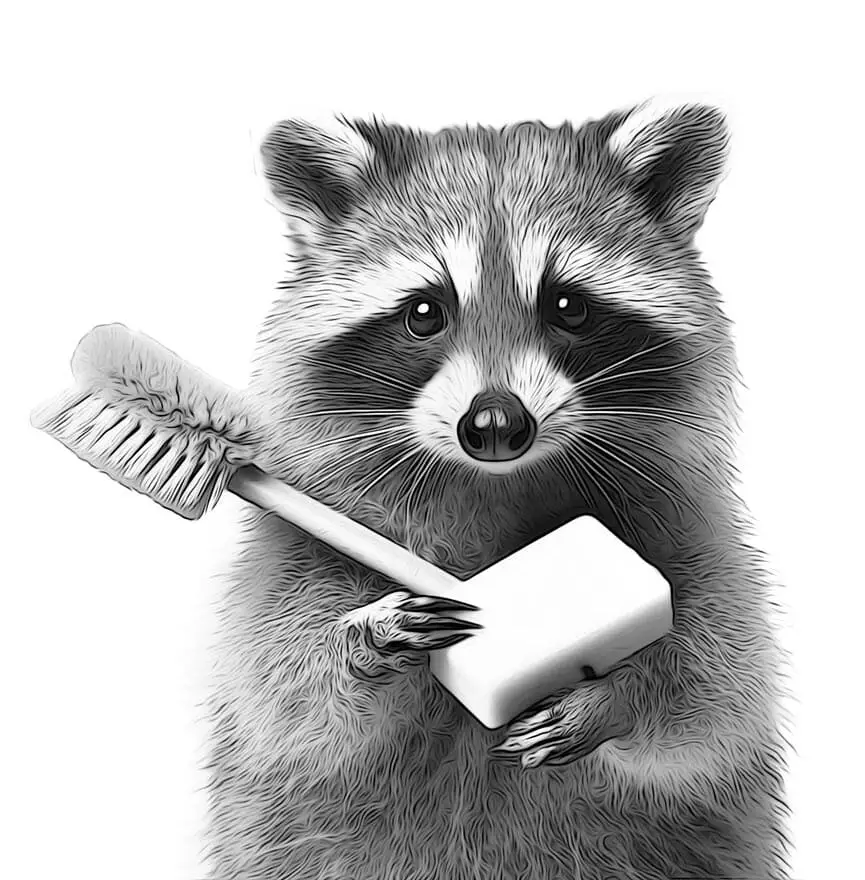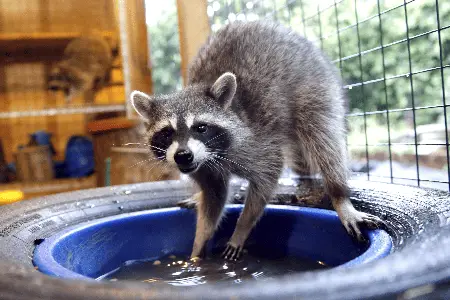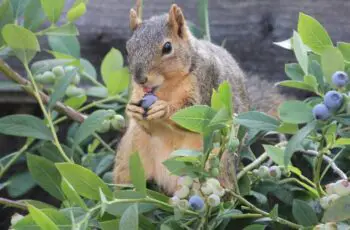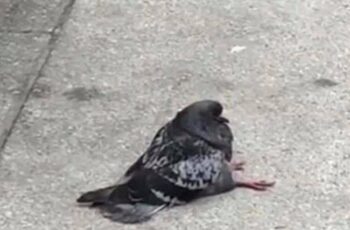Fascinating animals, raccoons are noted for being observant and versatile. These animals are widespread throughout Europe and Asia, in addition to their native North America. Raccoons, with their characteristic masked faces and ringed tails, have been elevated to the status of cunning and creative emblems in popular culture. Beyond their endearing looks and naughty antics, raccoons significantly affect the ecosystems in their immediate surroundings. Notably, the food they eat has a big impact on both their ability to survive and how they affect the ecosystem. This post will discuss raccoon nutrition and their purported preference for soap use.
Because they eat a wide variety of foods, raccoons are considered omnivores. They eat plant and animal materials in the wild, including eggs, small animals, nuts, fruits, and insects. However, these obedient creatures are highly skilled hunters and exhibit remarkable resilience in environments altered by human intervention. Because of this, there is a widespread misperception that raccoons will consume anything. Including objects like soap that are not part of their normal diet. We will investigate the veracity of this theory and look at how raccoons’ diets affect their daily lives in this essay.
Do raccoons eat soap? Actually?
Raccoons eat predominantly meat and other animal products since they are carnivores. They are specifically opportunistic predators, meaning they will consume everything easily found in their surroundings. This includes fish, frogs, and crabs, as well as small animals like rodents, birds, and reptiles. But it’s also known that raccoons eat plant-based foods, especially fruits and nuts, to complement their diet. In urban environments, these incredibly adaptive creatures have even been seen to eat human waste, including food scraps and trash. There’s no scientific evidence that raccoons have an innate need to eat soap, despite their diverse eating patterns.

Many people have reported seeing raccoons chewing on soap bars or drinking liquid soap from bottles, leading to a lot of conjecture about these creatures consuming soap. But it’s important to remember that raccoons are sentient animals with the ability to learn from their experiences. This implies that raccoons may confuse the smell of soap with possible food sources. Including trash or human food, in places where soap is often used. As a result, there may be times when raccoons try to eat soap because they think it might be food. But rather than being a natural dietary choice, this behavior is a learned one that has been shaped by their environment. Therefore, the scientific understanding of raccoons’ feeding habits can refute the myth that they genuinely eat soap.
Why do raccoons keep stealing soap?
Since these curious animals are known to visit residential areas, raccoon soap theft has become a frequent occurrence. Though curiosity may have killed the cat, raccoons—who are notoriously curious—have undoubtedly taken an interest in it. So why do raccoons continue to pilfer soap? Three well-known ideas make an effort to explain this behavior:
1. Raccoons may be led to believe by the soap’s scent that it contains savory oils or animal fats. Those fats resemble those in their normal diet. Raccoons are opportunistic hunters who possess an excellent sense of smell and are constantly. Especially searching for possible food sources. As a result, they could be attracted to the smell of soap and try to eat it.

2. Bright colors and unusual designs captivate raccoons. This is why soap bars appeal to raccoons. Colorful soap is an appealing target for raccoons because they are drawn to anything that stands out, as demonstrated by their affinity for bright objects.
3. For raccoons, stealing and potentially even eating soap might just be an exercise in trial and error. These perceptive creatures are renowned for their flexibility and capacity to take in environmental knowledge. As a result, they can be experimenting with novel and strange items and inadvertently swallowing soap.
Can raccoons eat Irish spring soap?
Irish spring soap is a dubious product for inquisitive animals like raccoons. Its peculiar recipe and distinctive aroma set it apart from other soaps. Though they are known to eat a variety of foods and are opportunistic eaters, raccoons do not appear to have a predilection for soap. Therefore, it is exceedingly improbable that they would purposefully swallow Irish spring soap, even though they would be tempted by its alluring appearance and scent. Furthermore, if raccoons were to consume Irish spring soap, the intense scent and chemicals might be toxic to them. Irish spring soap is therefore not a natural or safe element of raccoons’ diet, and feeding it to them is not advised.
- Can raccoons eat avocado? Side Effect of Avocado for Raccoons?
- Can baby raccoon Drink Milk? Raccoon breastfeed? Cow milk?
- How to Download macOS Sonoma 6k Wallpaper?
How can Irish Spring Soap stop raccoons for the Long Team?
The problem with employing odors as a long-term solution is that the scent will fade with time or the raccoon will become accustomed to it via frequent exposure. This is because there are no scientific studies or proof to support deterring raccoons using Irish Spring soap, so the only way to establish its effectiveness is by trial and error. Because they are smart and able to adapt to their environment, raccoons can swiftly assess whether or not a situation is dangerous. A raccoon may decide to disregard the soap’s aroma if it knows it won’t hurt it.
Here’s one more important thing to note: Irish Spring soap is said to appeal to a raccoon’s acute sense of scent. It’s crucial to remember that repelling bugs will be difficult if the aroma of the surrounding area overpowers the soap’s scent.
Benefits and Side Effects of Using Irish Spring Soap?
Irish Spring soap offers several advantages when used as a raccoon deterrent. First off, non-target species are not harmed by Irish Spring soap, in contrast to other deterrents like traps or chemical repellents. This renders the solution safe and humane by removing the chance of inadvertently injuring innocent animals that might come into contact with the soap. Irish Spring soap is also reasonably priced and easily accessible, which makes it a good choice for people who have raccoon issues.

However, applying Irish Spring soap to raccoons may have unfavorable effects, as with any other wildlife deterrent technique. According to the GIS Research Laboratory at the University of Southern California, when raccoons are captured in live animal traps, it is difficult to differentiate them from other species. This implies that there’s a chance of accidentally capturing animals, which could cause injury or discomfort. Moreover, there’s a possibility that the raccoons will eventually get used to the soap’s smell and lose its effectiveness as a deterrent. When deciding to use Irish Spring soap as a raccoon deterrent, it is crucial to carefully consider the possible side effects, as with any solution.
FAQ
1. Why do raccoons keep stealing soap?
Raccoons may be attracted to the color and design of soap or maybe experimenting with new items. They may also mistake the smell of soap for that of their normal food sources.
2. How can Irish Spring soap stop raccoons in the long term?
The effectiveness of using Irish Spring soap as a deterrent for raccoons has not been scientifically proven. Raccoons may become immune to their scent over time.
3. What are the benefits and side effects of using Irish Spring soap to deter raccoons?
One benefit of using Irish Spring soap as a deterrent is that it is unlikely to harm non-target species. However, its effectiveness as a long-term solution is uncertain.
Conclusion
In conclusion, despite reports of raccoons acting in ways that might be mistaken for soap consumption, no scientific data exists to substantiate this theory. Although they are opportunistic hunters and omnivores, raccoons are not naturally inclined to eat soap. Raccoons may be attracted to its scent or appearance. Irish Spring soap might temporarily discourage raccoons, but it won’t work in the long run because these ingenious animals can quickly adapt to their surroundings. Notwithstanding their mischievous nature, raccoons are valuable members of their ecosystems and should be respected and coexisted with.


